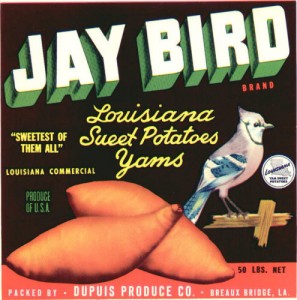[Third in a series on the possible effects of proposed federal food safety legislation on small/local foodmakers and farmers. Earlier coverage is here and here; and see related post on animal-tracking proposals]
- Could the outcry be having an effect? Until now, Rep. Rosa DeLauro (D-Ct.) has repeatedly insisted that backyard and kitchen-table producers have nothing to fear from her bill, H.R. 875, the proposed Food Safety Modernization Act, because they do not engage in “interstate commerce”.
 Many observers pointed out that under U.S. Supreme Court precedent, an exceedingly broad range of agricultural and food activity (right down to the growing of grain with which to feed oneself or one’s animals) has counted as within the bounds of “interstate commerce” reachable by federal regulation.* Now, at the end of a Huffington Post piece sympathetically relaying DeLauro’s views, there comes an “Update” nodding toward the courts’ practical application of the “interstate commerce” concept and reporting that DeLauro’s staff is promising “clarifications” of the bill’s reach, perhaps even “technical corrections”, to be ready “in the next few weeks”.
Many observers pointed out that under U.S. Supreme Court precedent, an exceedingly broad range of agricultural and food activity (right down to the growing of grain with which to feed oneself or one’s animals) has counted as within the bounds of “interstate commerce” reachable by federal regulation.* Now, at the end of a Huffington Post piece sympathetically relaying DeLauro’s views, there comes an “Update” nodding toward the courts’ practical application of the “interstate commerce” concept and reporting that DeLauro’s staff is promising “clarifications” of the bill’s reach, perhaps even “technical corrections”, to be ready “in the next few weeks”. - When those corrections and clarifications appear, one crucial question will be whether they include any de minimis provisions exempting small, local, or informal producers and sellers (of course, these entities might continue to face stringent state or local regulation). As it stands now FSMA, like CPSIA before it, is notable for its lack of de minimis exclusions, as well as its failure to prescribe “scale-appropriate” principles (“tiering”, streamlined reporting, etc.) by which entities that deal in less than industrial volumes might be given the benefit of simpler and less onerous rules.
- Given the stated views of the advocacy groups behind FSMA, I very much doubt that a revised version will in fact exempt producers of food intended for consumption within one state only. Even if it does, however, the law will still cover many persons like Harold Gundersen, who sells food from his Southwest Michigan farm at two suburban-Chicago farmer’s markets and in doing so manages to have legal contact with three states in all:
“We’re highly regulated by state government and federal government,” he said. … [Gundersen] pays $65 twice a year to an inspector from DuPage County, who comes up to Michigan to inspect the apple butter and cider that he sells.
Gundersen is indignant at that last requirement because he doesn’t even process the apple butter and apple cider — he takes his apples down to an Amish man in Indiana who seals them in cans and jugs. Because that facility is already visited by Indiana inspectors, Gundersen sees no reason for a DuPage inspector to take a second look.
“There is nothing for her to look at,” Gundersen said. “She looks at my jars and says, ‘OK, I’ll sign this stuff.'”
Through much of the country — in most of the big cities of the Northeast and Midwest, for example — food grown within a radius of (say) 100 miles will often have crossed state lines.
- FactCheck’s lullaby of reassurance on the subject contains the following passage aimed at readers who might be perceiving FSMA as a far-reaching power grab by the federal government, or something like that:
The bill has 41 cosponsors** and has been endorsed by major food and consumer safety organizations, including the Center for Science in the Public Interest, Consumer Federation of America, Consumers Union, Food & Water Watch, and The Pew Charitable Trusts. Food & Water Watch is a nonprofit organization that advocates for clean water and safe food and is headed by a woman who used to work for Public Citizen, the consumer group founded by Ralph Nader.
 Well! If a bill has 41 cosponsors, it must have been well vetted, right? (CPSIA had 106). And its backers include not only Consumers Union and Consumer Federation of America — both instrumental in bringing us the CPSIA debacle — but also a group headed by an alum of Nader-founded Public Citizen. It’s not as if Public Citizen was the acknowledged leader of the Washington coalition that pushed for CPSIA and has defended it ever since, right? Oh wait.
Well! If a bill has 41 cosponsors, it must have been well vetted, right? (CPSIA had 106). And its backers include not only Consumers Union and Consumer Federation of America — both instrumental in bringing us the CPSIA debacle — but also a group headed by an alum of Nader-founded Public Citizen. It’s not as if Public Citizen was the acknowledged leader of the Washington coalition that pushed for CPSIA and has defended it ever since, right? Oh wait.Center for Science in the Public Interest? That’s the outfit that’s called for federal regulation of the use of salt in foods, and its busybody litigiousness has long furnished copious material for this site. Pew Charitable Trusts (is it now OK for charitable foundations to support legislation?) has long had its hand in a hundred activist causes. And so forth. This is not reassurance; to coin a phrase, it’s de-assurance.
- Deputy Headmistress: “I would believe these consequences were ‘unintended’ if I didn’t see the same consequences from government action over and over again.”
- No, I don’t agree with the chain-email theories that insist that Monsanto, the giant agribusiness firm, is masterminding the push for this law. (Or the counter-push against it, depending on who you talk to. Maybe both!). Since the company’s name is always coming up, however, here’s a link to what the company’s own spokesman had to say on the lefty site Crooks and Liars, which was not quite what I expected (though I’m not sure what I did expect).
- Brian Doherty writes about the furor at Reason (with comments here) and John Schwenkler also weighs in at his blog. And in the comments section of our initial post, check out what “Pelly” has to say about yogurt in Nova Scotia.
*Of course, it’s possible that a statute might not grant the federal regulator as much authority as courts would be willing to uphold as constitutional. HR 875 incorporates by reference the FDA’s current definition of “interstate commerce”. I’m not an expert in this area, but various documents suggest that the FDA already asserts much authority over items and processes whose production or use does not cross state lines.
**Among the 41 co-sponsors are such figures as Rep. Jan Schakowsky (D-Ill.), who as a co-sponsor and defender of CPSIA has been ferociously unsympathetic to distress cries from small businesses arising from that law.

3 Comments
Another comprehensive report. The thing to watch will be how DeLauro alters the bill to protect “small” farms. How many units must that organic arugula producer sell before he’s a corporate tycoon?
[…] 23, 2009 by Vines & Cattle Overlawered.com has posted yet another comprehensive report on the developments in Food Safety Modernization Act of […]
Selling at Farmers’ Markets: How to Start and What Rules Apply…
High season has begun in many farmers’ markets around the country. Farmers’ markets offer small scale farmers and hobbyist gardeners an opportunity to earn money while providing fresh food and produce to their communities. So, how do you get started….